A few months ago, while I was working on a climate essay for Fly Fisherman magazine, a well-known angler dropped me a note and mentioned that he no longer enjoys fishing the West during July and August. His reason? Summers out here have gotten too hot, and the fishing isn’t as good, or as reliable, as it used to be.
That’s a valid point, and while my buddies who own fly shops or guide services here in Montana don’t usually broadcast this info, I can tell you that our summers are indeed hotter and smokier than they used to be; a fact confirmed by our longterm temperature records and the increasing frequency of major wildfires. It also seems as if our winds are stronger, which makes sense. More heat in the atmosphere translates to more energy, and that energy has the potential to manifest itself as more wind.
Now as a story line, this pretty much sucks. The trends are heading in the wrong direction, at least for those of us who like cold mountain streams and rising trout, and barring strong, concerted action to reduce our fossil fuel emissions and put the breaks on climate change, the future is likely to be bleak. In other words, we’re not doing our kids or grandkids any favors by ignoring the overwhelming scientific consensus on global warming.
Rather than looking too far down the road, though, I want to make a more immediate point. Climate change, as I’ve mentioned in the past, is personal. It’s not some far-off, amorphous issue that may, or may not, impact someone on the other side of the world a hundred years from now. It’s slamming us today.
And that concept jumped front & center when a couple of friends asked me to join them on a fishing trip this summer. They were looking to fish Montana this August, while I tend to believe that August rivals January as the worst month to visit the West with a fly rod. Not because the fishing isn’t good during the summer - hell, it can be incredible - but because a hot, dry spell can shut down the rivers for weeks at a time, while smoke and wildfires can choke off any chance at a decent trip.
So we talked it over and eventually made the decision to shift our adventure north of the border. In my mind, British Columbia and Alberta seemed the safer bet for mid-August, and the fishing up there is good enough that even if the conditions prove less than stellar, we’re still likely to catch a few trout.
But as of today, I’m wondering if I made the right call. The Pacific Northwest is currently hot and dry, with wildfires sending smoke east into Montana. At the same time, huge fires are sprouting up like mushrooms all over northern Canada, to the point where the smoke column is visible from space.
That’s not exactly what I was hoping for when I pushed for BC and Alberta.
So here’s the deal. As any number of climate scientists have pointed out, we are currently performing an incredibly huge experiment - on ourselves. We’re dumping massive quantities (more than 30 billion tons a year) of CO2 into the atmosphere, and we’re doing our damnedest to ignore the obvious implications of our actions.
Which means that when we decide to go on a fishing trip, we have to take into account the changing precipitation and temperature patterns, and roll the dice on how things will play out in the near term. There’s no doubt that natural variability will continue to have a major influence on our weather, but we also need to keep in mind that, for the first time ever, humanity is loading the dice and influencing the outcome.
Now maybe that wouldn’t be such a big deal if our previous weather patterns were terrible, or if climate change was a distant concern. But that's not the case. Global warming is here, and it’s starting to impact our lives on a regular basis. In the West, we’re seeing extreme heat and mega-droughts and catastrophic wildfires. Back East, it’s sea level rise and crazy storms and lots & lots of hungry, disease-carrying ticks and mosquitoes. Either way, our fishing takes it in the shorts.
So what should we do?
While that’s a question we all need to answer for ourselves, here are three pretty reasonable suggestions:
- Live as sustainably as possible, with an eye toward lowering your energy use and cutting your personal CO2 emissions.
- Call your senators and congressman and tell them that we need to pass strong climate & energy legislation. If we can put pressure on the politicians in DC to take action, we'll give our kids & grandkids a shot at a decent future.
- Head for the water every chance you get.
Why that last one? It's simple. We fight for what we love. The more time we spend fishing, the more passion we have for defending our sport.
Todd Tanner is an outdoor writer, a former fly fishing guide, and the president of Conservation Hawks. To learn more about climate change and its impacts on sportsmen, please visit ConservationHawks.org.





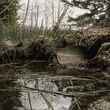
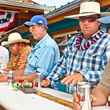
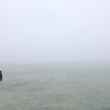
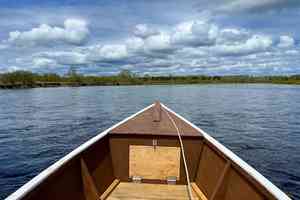


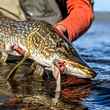
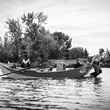
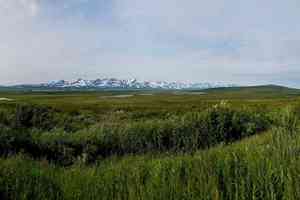

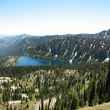

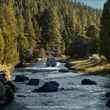



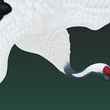




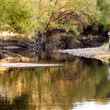
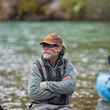
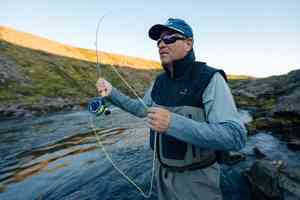

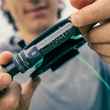
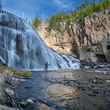
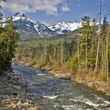
Comments
Anonymous replied on Permalink
Horrible, Horrible article...I came to read about flyfishing not Al Gores Global Warming bs. Look at the facts, do some research and you''l agree you've been duped into a lie. Don't believe everything you hear on TV! Be informed look further than the mainstream. You might just be surprised in what you find.
Steve Zakur replied on Permalink
Duped? If by that you mean that all the folks who are experts at this agree it is happening and all the folks who have an economic interest in denying it saying it isn't, then yes, I suppose we have been duped.
See John Oliver's excellent illustration on just how universal this belief is among scientists. http://m.youtube.com/watch?v=cjuGCJJUGsg
Nice article, Todd. I'm taking your advice. I'm spending the whole day on the water tomorrow.
Todd Tanner replied on Permalink
Thanks, Steve. Here's hoping you have a tremendous day on the water tomorrow. I may actually sneak out for a little bit this afternoon myself.
By the way, if you ever find yourself kicking around western Montana, look me up. Maybe we could even find a fish or two that would be willing to cooperate ...
Pages